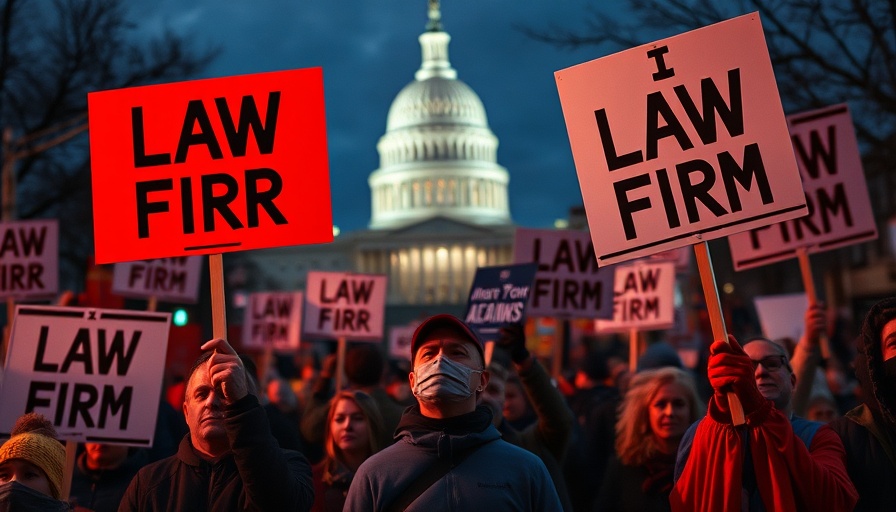
Understanding Trump’s Influence on Legal Landscape
In recent times, Donald Trump has exhibited a remarkable ability to tap into and capitalize on the identity crisis facing the legal profession, notably in Big Law. This sector, which traditionally upheld principles of justice and ethics, now finds itself at a crossroads, navigating external pressures while wrestling with its internal values. Trump's approach seems to exploit these vulnerabilities, appealing to both emotions and legal reasoning.
Historical Context of Big Law's Identity Crisis
The legal field has always been shaped by significant social and political changes. With the rise of populism and a declining trust in institutions, including the judiciary, firms within Big Law face challenges in maintaining their reputations. Trump’s public mistrust of the judicial system directly appeals to segments of the population craving legal validation for their dissent. This signals a shift whereby the very institutions meant to uphold societal norms are now contested grounds, blurring the lines between legal representation and political allegiance.
The Emotional Connection to Legal Practices
Legal representatives must recognize the emotional and psychological components at play in such a volatile environment. Trump’s tactics resonate deeply with individuals feeling disenfranchised by a complex legal system, fueled by perceptions of elitism within Big Law firms. By positioning himself as an alternative, he not only garners support but challenges firms to reconsider how they engage with their clients and communicate their values. This strategy brings forth an urgent call for law firms to restore their identity amidst growing public skepticism.
Forecasting the Future of Big Law
As firms navigate these turbulent waters, they are faced with critical decisions that could redefine their trajectories. Looking ahead, it will be crucial for legal entities to engage in meaningful dialogues about their role and responsibilities. This shift could herald a new era where firms integrate social accountability into their business models, perhaps even leading to a transformation where corporate governance includes elements of corporate social responsibility and sustainability.
Challenges and Opportunities for Legal Firms
The current landscape presents both risks and opportunities for Big Law. Firms are now challenged to differentiate themselves by addressing issues such as workforce diversity, digital transformation, and ethical governance. Emphasizing these areas could not only mitigate the trust disparity but also foster a more inclusive environment — one that aligns with the sentiments of a broader community.
Practical Insights and Tips for Big Law
To thrive in this dynamic environment, Big Law firms must adopt several best practices. Firstly, engaging with clients through transparency and open communication will be paramount. Secondly, incorporating technology to streamline processes can enhance efficiency while also appealing to tech-savvy clientele. Lastly, focusing on sustainability in business practices can position firms as forward-thinking leaders in the industry, paving the way for intrinsic loyalty among clients who value corporate ethics.
The Role of Big Law in Economic Trends
In light of the Bay Area’s fast-paced business environment, particularly with the rise of Silicon Valley startups and venture capital funding, Big Law cannot afford to be static. The dynamics of corporate governance are evolving, and legal professionals must keep abreast of shifts in employment trends and business regulations to provide relevant counsel. Collaborating with startups not only enriches the firm’s experience but also builds lasting partnerships with the next generation of innovators.
Transformational Changes in Legal Services
The legal sector faces unique hurdles but also opportunities for transformation. By championing comprehensive reforms focused on business innovation and corporate responsibility, Big Law firms can reposition themselves as not just advocates for their clients, but also as champions of societal progress. Such a shift may redefine legal ethics and standards in a manner that responds effectively to modern challenges.
As the narrative around Big Law continues to evolve, firms must respond to the identity crisis caused by leaders like Trump, leveraging these insights to better align themselves with the values of today's consumers. Transparency, diversity, and sustainability will not only drive client loyalty but also empower firms to thrive amidst adversity.
 Add Row
Add Row  Add
Add 



Write A Comment